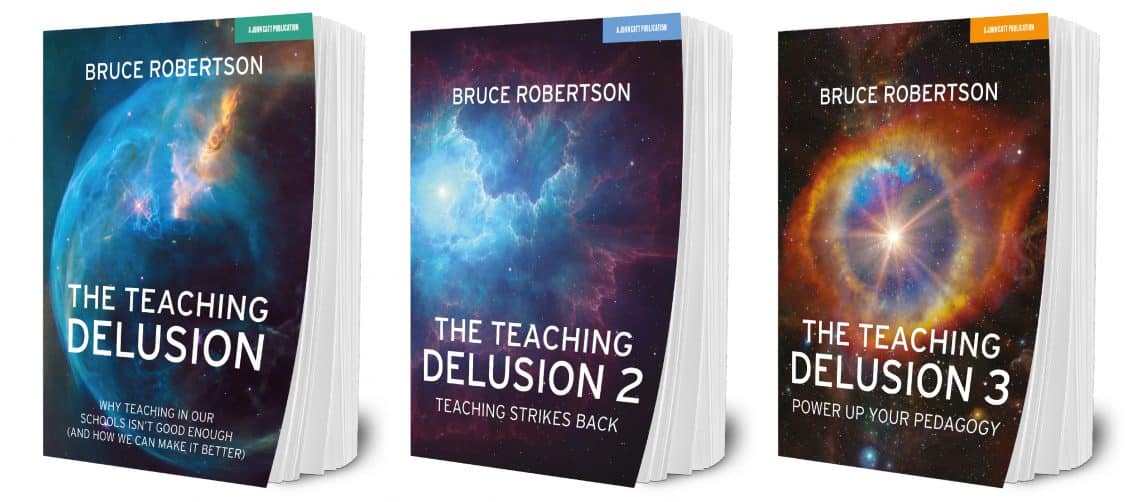Each year at Northern Beaches Christian School, staff delve deep into the literature of education. In doing so, they seek to engage with key ideas and approaches in the field, and more importantly, ideas that translate into practical benefit to students and their learning.
Last year staff explored Tom Bennett’s Running The Room, coming away with a deeper appreciation for clear, explicit, and well taught expectations about the routines that make school life clam, clear and consistent for all.
This year, we are working through the first volume of Bruce Robertson’s The Teaching Delusion. Robertson’s work is described as well informed, clearly written, provocative and practical. The delusion of the title is that our current practice is as good as it could be, to which the retort is, “no, it could be better”.

In 2024 NBCS staff are working through Bruce Robertson’s ‘The Teaching Delusion’ which asks the big questions of: why teaching in our schools isn’t good enough, and how we can make it better.
Robertson’s answer to improving the quality of teaching is the development of a shared understanding of what makes great teaching, the development of a professional learning culture and how those elements combine to transform teaching practice within schools. The Teaching Delusion doesn’t rest on presumed knowledge or assumptions but seeks to make explicit what is often left unsaid.
For Robertson, and hopefully for most of us, “Schools are, first and foremost, about supporting, challenging and inspiring young people to learn.”
Again, in Robertson’s words, “Learning opens doors and transforms lives. If we accept that schools are, first and foremost, places of learning, then schools are places which transform lives.”
Robertson says: “As a result of going to school, every student’s life should become better than if they had not gone to school.”
“Regardless of students’ circumstances, schools have the power to teach students about things they would never have learned, in ways which could never have happened. As a result of going to school, students’ lives can go in directions they would never otherwise have gone.”
For Robertson, the extent to which teaching can be deemed to be ‘great’ is dependent on two factors:
- The extent to which all students are learning.
- The extent to which all students enjoy their learning.
As Robertson puts it, “The synergy of high-quality pedagogical subject knowledge, teacher-student relationships, direct-interactive instruction, and formative assessment is the essence of great teaching.”
As above, Direct-interactive instruction is a key component of great teaching. It is concerned with review, explanation, demonstration, modelling, exemplification, interaction, scaffolding, practice questioning, checking and feedback.
And finally, in Robertson’s view, “what are the key factors that lead to high-quality student learning?”
- Great teaching
- Hard work on the part of students
Through the courage to question our practices, the desire to get even better as teachers, shared understanding, and practical application, we believe we can help unlock the learning that enables all our students to “open doors and transform lives”.
Tim Watson, NBCS Principal




